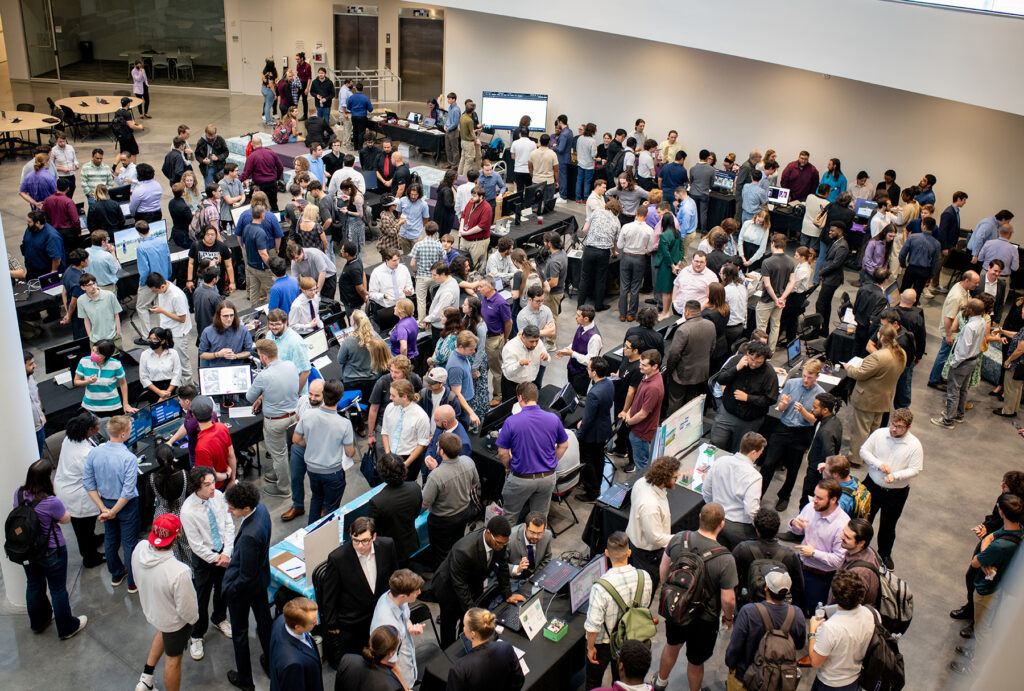A new study finds that Florida Polytechnic University students graduate better prepared for STEM careers than their peers at most institutions, thanks to the University’s distinctive capstone design program. The research highlights that Florida Poly students tackle projects of greater complexity, collaborate more effectively across disciplines, and gain critical professional communication and presentation skills.
The study was published in ASEE Peer, a journal of the American Society for Engineering Education, and recently presented at the ASEE 2025 Annual Conference and Exposition in Montreal, Canada. Seven faculty members authored the research paper, outlining the program’s successful outcomes while offering guidance for other institutions seeking to start their own.
“What makes what we do unique is we’re doing it in a multidisciplinary way at a full university scale,” said Dr. Matt Bohm, director of industry engagement and capstone projects. “At other places that try to do multidisciplinary projects, you’ll see mechanical engineering, electrical engineering and computer science students provide their own solutions to a problem, but the solutions often don’t work together.”
In order to graduate, every Florida Poly senior spends their final year working in a cross-disciplinary team to complete a complex, industry-sponsored capstone project. Together, the students address real-world challenges that prepare them to excel in high-demand STEM fields.
The effectiveness of this approach is clear in the unified solutions teams deliver after months of collaboration, Bohm said. The program also equips them to take on work outside their own technical expertise and to begin having a meaningful impact in professional settings from the outset.
“This is the kind of preparation you don’t get anywhere else,” said Dr. Jim Dewey, professor of business analytics and a co-author of the paper. “In business and data science, capstones are usually much more focused on handing students a problem or a series of case studies. That can be useful, but it doesn’t simulate what life is really like in the workplace or give students a real-world project to discuss in job interviews.”
In addition to Bohm and Dewey, the paper’s multidisciplinary authors are Dr. Alexander Murphy, Dr. Elisabeth Kames, Dr. Karim Elish, Dr. Onur Toker and Dr. Denis Ulybyshev.
“We have sponsors that come back to us again and again – they love doing projects with us because we can tackle some challenges other universities can’t,” Bohm said.

Contact:
Lydia Guzmán
Director of Communications
863-874-8557


